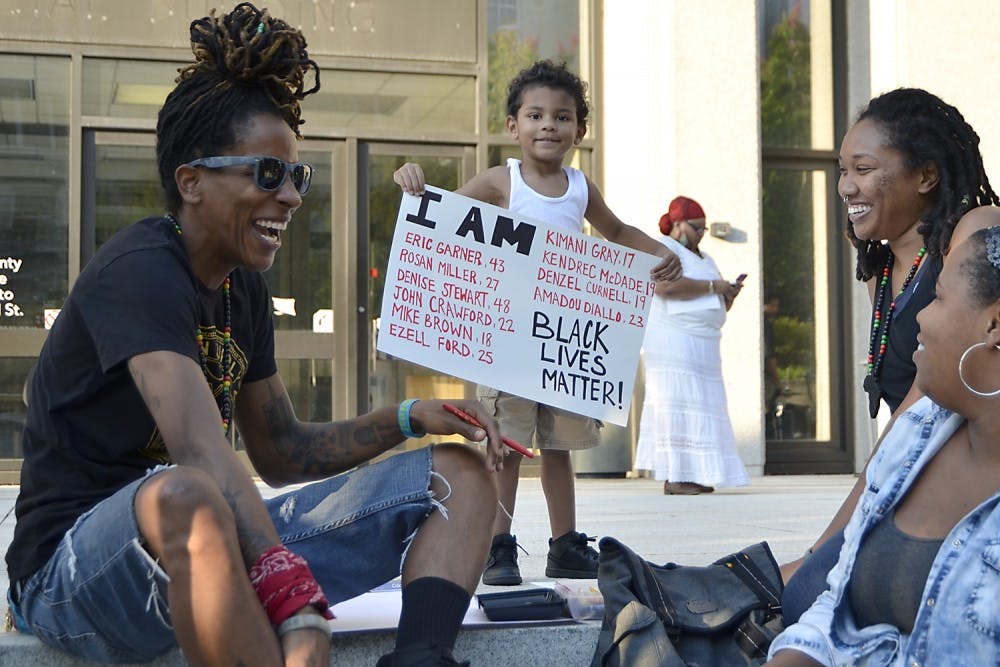Hundreds raised their arms in solidarity during a vigil held in Durham Thursday night for victims of police brutality in Ferguson, Mo.
More than 200 people attended the vigil, organized by Durham activists as part of the larger social media-driven national moment of silence for those who have been killed or assaulted by police officers across the country.
The movement was sparked by the death of Michael Brown, an unarmed 18-year-old black resident who was shot several times and killed by a Ferguson police officer Saturday.
Following his death, riots broke out in Ferguson. Police response to the riots has been described by social justice activists as an excessive use of force, and activists across the country have been inspired to protest police brutality.
Durham-based activist Lamont Lilly said the Durham event was organized in the space of two days and urged the importance of community gatherings like the vigil around the issue of police violence and other racially-motivated violence.
"There are stray cats and dogs that are treated better than black people," Lilly said.
Pierce Freelon, a musician, journalist and professor at North Carolina Central University, performed a slam poem titled "Captain America" about white supremacy and racial violence in the United States.
"Red blood, white skin, blue eyes, million-dollar corporate smile," Freelon said, describing America's superhero. "Somebody asked me the other day what it's like to be black in America. I thought about it for a minute and then I responded, 'Captain America, click clack, Captain America, click clack, we are capped in America.'"
Among the speakers at the vigil was Nia Wilson, executive director of Durham's SpiritHouse, a cultural arts and civic engagement organization working to fight systemic racism.




